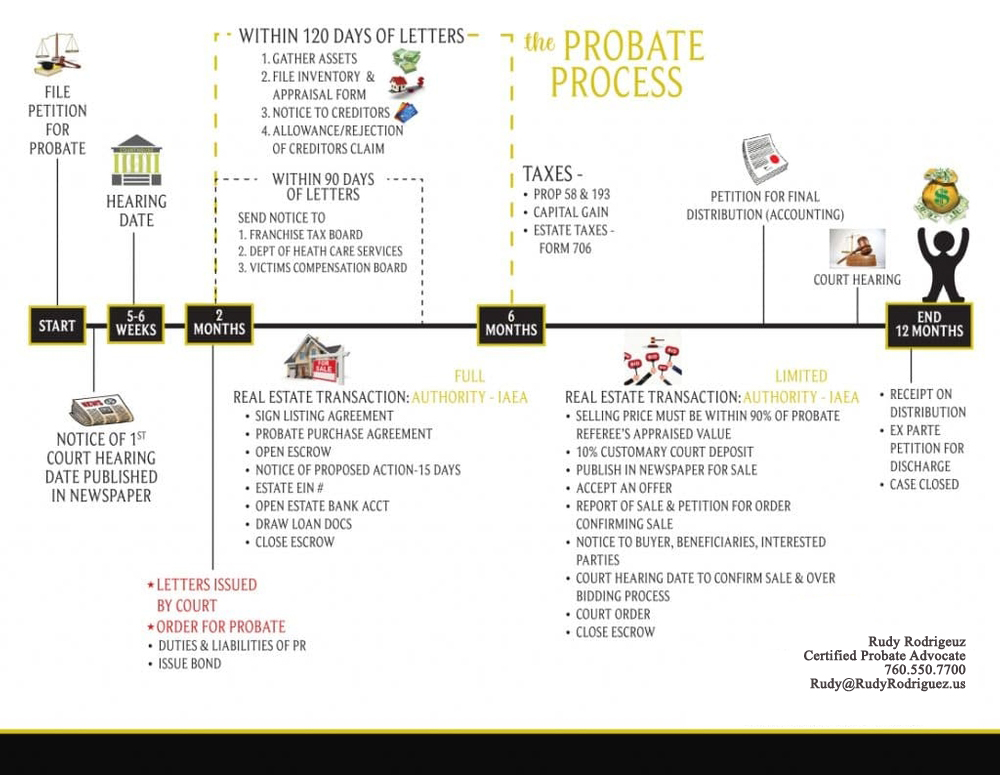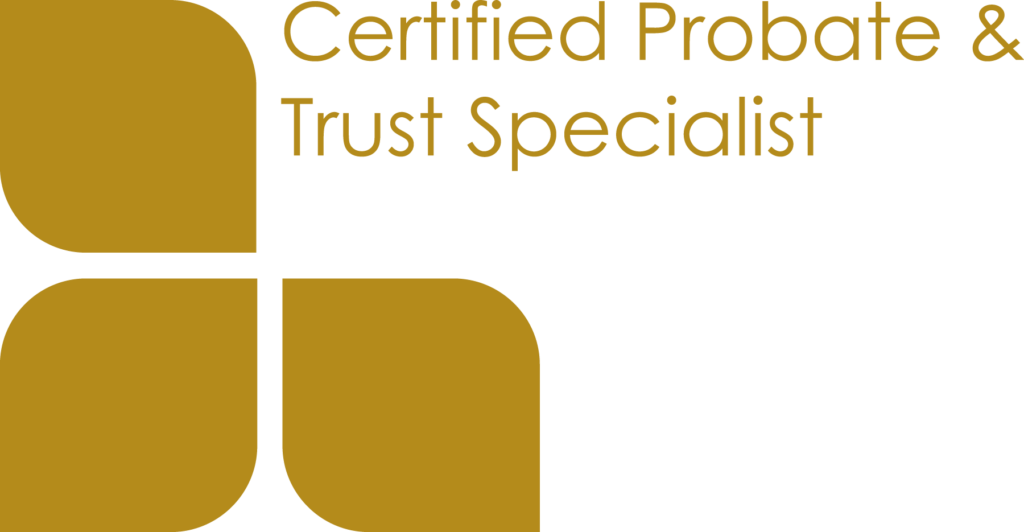A Step-by-Step First Time Seller’s Guide
Putting your home on the market can be a stressful process, especially when you don’t know what to expect. Fortunately, with the help of an experienced agent and this easy-to-follow guide, you can smoothly complete the process. Following these steps will help you prepare so you can get organized and sell your home for the best price possible.
Step 1: Understand Why You’re Selling
What do you want to accomplish with the sale of your home? Do you want to make a certain amount of money that you can put toward a larger or nicer home? Do you need to sell it as soon as possible to facilitate a move to a new city or area? Once you understand your needs, you can better craft your offer. For example, if you need to sell quickly, you might want to price your home lower than if your goal is to make a certain profit margin. Make sure you convey these needs to your realtor once you choose one so he or she can adjust your selling price accordingly.
Step 2: Determine Selling Price
Knowing how to price your home is one of the most important parts of the selling process. When you set a fair price in the beginning, you’ll get the most interest from other real estate agents and prospective buyers. Overpricing your home could lead to reduced interest, and underpricing leads to receiving less than what your home is worth. Working with a real estate agent is the best way to determine the right selling price for your home. An agent with experience can determine what other comparable homes are selling for, evaluate the current market, and may even suggest a home appraisal.
Step 3: Start Preparations
If you’ve kept your home in showroom condition since you’ve lived in it, you’re in the minority of homeowners. Once you price your home, it’s time to start getting it ready to be shown to potential buyers. This includes getting rid of clutter, depersonalizing the space so that buyers can envision themselves in the space, making any small repairs, and doing a deep clean to make sure your home is in pristine condition.
Step 4: Develop a Marketing Strategy
I will develop a marketing strategy that is perfect for advertising your home. This involves listing the home and then driving the right people to that listing through social media campaigns, agent-to-agent referrals, traditional media, or SEO advertising. My team creates a marketing campaign that aims to get the most possible traffic to your listing in the first three weeks after becoming a client.
Step 5: Evaluate Offers
Receiving an offer is an exciting part of the process, but it doesn’t mean the journey is over. We will evaluate each offer and make sure the party making the offer is prequalified or pre-approved by a mortgage lender and that their offer is acceptable to you. If the offer is too low, you can make a counter-offer or offer other ways to bridge the gap, such as covering some or all of the closing costs, making repairs, adjusting the move-in date, or leaving some appliances or fixtures for the new buyer.
Step 6: Accept an Offer
Once we deem the offer is accepted, we will review the proposed contract to make sure it’s all in order and includes the necessary components such as deposit amount, down payment, financing, inspection rights and repair allowances, contingencies, settlement date, and a list of fees and who will pay them. When both parties have agreed to the term, a final contract will be prepared by your agent.
Step 7: Get Ready to Close
You have accepted an offer and are now very close to the end of your selling journey. But first, you and the buyer must make a list of what needs to be done before closing. In some cases, your home may need to be formally inspected, surveyed, and appraised. In other cases, major or minor repairs will need to be made before the house can close. I will head up efforts to develop and execute this list, get each action item paid for by the correct party, and make sure everything is in order by the closing date. A few days before the closing date, we will call the company closing the transaction to make sure everything is ready to go. If you haven’t done so already, you also need to make arrangements to move out of the home so the new buyer can take possession.
Step 8: Close
You’ve reached the last step in the seller’s process. When you close on a home you are selling, you are legally transferring ownership of the property to the new buyer. We will meet with the company closing the transaction to sign the final paperwork and go over any issues that have not yet been taken care of. During this time, you can also make plans with your realtor to handle final details such as canceling utilities, cable, and lawn or trash services, changing the name on accounts that the new owner is retaining and ensuring the new owner has instructions for all appliances that will remain in the home.
Congratulations!
Once you have sold your home, you’re free to take the next step on your journey. Whether this is relocating to a new city, moving into a larger home, or downsizing and enjoying your life as empty-nesters, knowing all your selling responsibilities have been taken care of will help you achieve peace of mind for your new path.
Most home sellers dream of a stress-free sale in which they simply list their house, quickly find a qualified buyer, collect the cash and hand over the keys. If only it were that simple! In reality, selling a home involves many moving parts — some that you can control, and some that are out of your hands.
For example, geography might influence how long your house lingers on the market or how high of a list price you can get away with. In locations where competition is hot and inventory is low, odds are you’ll sell faster and command a higher price. Conversely, in places where home sales have cooled, you will likely have to work harder to attract the right buyer.
The real estate market has shifted since the frenzied heights of the pandemic. Frantic bidding wars are (mostly) over, and both prices and mortgage rates remain high. With fears of a recession looming, many buyers are staying on the sidelines until either rates or prices (or both) come down. Ultimately, this has created a more balanced market: Sellers no longer have the clear upper hand.
So, as a seller, it’s smart to be prepared and control whatever factors you’re able to. Things like hiring a great real estate agent and maximizing your home’s online appeal can translate into a smoother closing — and more money in the bank. Here are nine steps to take to sell your home in 2024.
1. Set a timeline for selling your home
Selling a house is a major undertaking that can take several months from start to finish — or much longer, depending on local market conditions. So it makes sense to plan ahead and stay organized.
As soon as you decide to sell your house, jump right into researching real estate agents to find someone with the right experience for your situation (see Step 2). But don’t stop there.
At least two or three months before you plan to list, consider getting a pre-sale home inspection. This is optional but can be useful to identify any problem areas, especially if you suspect serious issues. Leave enough time to schedule necessary repairs.
About a month before listing your house, start working on deep cleaning in preparation for taking listing photos. Keep clutter to a minimum, and consider moving excess items to a storage unit to show your home in its best light.
2. Hire an agent who knows the market
The internet makes it easy to delve into a real estate agent’s professional experience, helping you choose the right person to work with. Look up agents’ online profiles to learn how long they’ve been in the industry, how many sales they’ve closed and what designations they may have earned. Pay attention to how and where they market their listings, and how professional their listings’ photos look.
“Any designation they’ve earned is a huge plus, because it’s a sign they’ve taken the time to learn about a particular niche,” says Jorge Guerra, president and CEO of Real Estate Sales Force and a former global liaison for the National Association of Realtors (NAR).
Some homeowners might be tempted to save on paying a commission and instead sell their home themselves, without an agent. This is known as “for sale by owner,” or FSBO. The amount sellers stand to save on those fees can be thousands of dollars, usually 2.5 percent or 3 percent of the total sale price. However, as the seller, you’ll still need to pay the buyer’s agent’s commission — and an agent does a lot to earn their fee. For example, they can expose your house to the broadest audience and negotiate on your behalf to garner the best offers possible. If you go it alone, you’ll have to personally manage prepping your home, marketing it, reviewing buyers’ offers and handling all the negotiations and closing details. When working with an agent, keep in mind that real estate commissions are often negotiable. As a result, you might be able to get a break at the closing table.
3. Determine what to upgrade — and what not to
Before you spend money on costly upgrades, be sure the changes you make will have a high return on investment. It doesn’t make sense to install new granite countertops, for example, if you only stand to break even on them — or even lose money. Plus, these improvements may not be necessary to sell your home for top dollar, particularly if inventory levels are low in your area. A good real estate agent will know what people in your area expect and can help you decide what needs doing and what doesn’t.
In general, updates to the kitchen and bathrooms provide the highest return on investment. But inexpensive DIY projects can also go a long way: A fresh coat of neutral paint and spruced-up landscaping are low-cost ways to make a great first impression.
There’s also the option of getting a pre-sale home inspection. This is optional, but it can be a wise upfront investment, especially in an older home. For a few hundred dollars, you’ll get a detailed inspection report that identifies any major problems. This alerts you in advance to issues that buyers will likely flag when they do their own inspection later in the process. By being a few steps ahead of the buyer, you might be able to speed up the selling process by doing repairs in tandem with other home-prep work. Then, by the time your house hits the market, it should be ready to sell, drama-free and quickly.
4. Set a realistic price
Even in competitive markets, buyers don’t want to pay more than they have to, so it’s crucial to get the pricing right. Going too high can backfire, while underestimating a home’s value might leave money on the table. To price your home perfectly from the start, consult comps. This information about recently sold properties in your neighborhood gives you an idea of what comparable homes around you are selling for, thus helping you decide how much you might reasonably ask.
“A frequent mistake sellers make is pricing a home too high and then lowering it periodically,” says Grant Lopez, Realtor at Keller Williams Heritage and former chairman of the San Antonio Board of Realtors in Texas. “Some sellers think this practice will yield the highest return. But in reality, the opposite is often true: Homes that are priced too high will turn off potential buyers, who may not even consider looking at the property.”
In addition, homes with multiple price reductions may give buyers the impression there’s something wrong with a home. So it’s best to eliminate the need for multiple reductions by pricing your home to attract the widest pool of buyers from the start.
5. List your house with professional photos
This step will likely involve your real estate agent registering the listing with the local MLS (multiple listing service). Here are some tips to get your home market-ready:
Get professional photos:
Work with your real estate agent to schedule a photographer to capture marketing photos of your home. With the ubiquity of online house-hunting these days, high-quality photos are critical. A pro photographer knows how to make rooms appear bigger, brighter and more attractive. The same goes for your lawn and outdoor areas.
Focus on online appeal:
You’ve probably heard of curb appeal, but professionals say online appeal is now even more important. In fact, nearly all homebuyers look at online listings — 96 percent, according to NAR. “Your home’s first showing is online,” Guerra says. “The quality of your web presentation will determine whether someone calls and makes an appointment or clicks on the next listing.”
Stage it and keep it clean:
Staging a home entails removing excess furniture, personal belongings and unsightly items from the home while it’s on the market, and arranging rooms for optimal flow and purpose. If you’re in a slower market or selling a luxury home, investing in a professional stager could help you stand out. Nationally, professional home staging costs an average of around $1,770, according to HomeAdvisor, but prices range between about $778 and $2,839.
Clear out for showings:
Make yourself scarce when potential buyers come to view your home. Let them imagine themselves in the space, free from the distraction of meeting and talking to you. “Seeing the current homeowner lurking can cause buyers to be hesitant to express their opinions,” says Lopez. “It could keep them from really considering your home as an option.” Generally, buyers are accompanied by their real estate agent to view your home. You can also ask your own agent to be present at showings.
6. Review and negotiate offers
Once buyers have seen your home, the offers will ideally start rolling in. This is where a real estate agent is your best advocate and go-to source for advice. If your local market favors sellers, buyers will likely offer very close to asking price, or possibly even above. On the other hand, if sales are slow in your area, you may have to be open to negotiating.
When you receive an offer, you have a few choices: accept it as-is, make a counter-offer or reject the offer. A counter-offer is a response to an offer in which you negotiate on terms and/or price. Counter-offers should always be made in writing and provide a short timeframe (ideally 48 hours or less) for the buyer to respond. You can offer a credit for paint and carpet, but insist on keeping your original asking price in place, for example. Or, you might offer to leave certain items behind to sweeten the deal.
If you’re lucky enough to get multiple offers, you might be tempted to simply go with the highest bid. But look closely at other aspects of the offer, too, such as:
- Form of payment (cash versus financing)
- Type of financing
- Down payment amount
- Contingencies
- Concession requests
- Proposed closing date
Be mindful that if a buyer is relying on lender financing, the property will have to be appraised. If there’s any shortfall between the purchase price and appraised value will have to be made up somewhere, or the deal could fall apart.
7. Weigh closing costs and tax implications
In any real estate transaction, both parties must pay at least some closing costs. The seller typically pays the real estate agents’ commissions, which usually total around 5 percent to 6 percent of the home’s sale price.
Some other closing costs commonly paid by the seller include transfer taxes, recording fees and outstanding liens. Additionally, if the buyer has negotiated any credits to be paid at closing — to cover repairs, for example — the seller will pay those, too. Your real estate agent or the closing agent should provide you with a complete list of costs you’ll be responsible for at the closing table.
The good news is that you may not owe the IRS taxes on your profits from the sale. It depends on whether it was your primary residence, how long you lived there and how much you make on the sale. If you’ve owned and lived in your home for at least two out of the previous five years before selling it, then you will not have to pay taxes on any profit up to $250,000. For married couples, the amount you can exclude from taxes increases to $500,000. If your profit from the home sale is greater than that, though, you’ll need to report it to the IRS as a capital gain.
8. Consider hiring a real estate attorney
Some states actually require sellers to have a real estate attorney to close on a home sale, but many don’t. Regardless of your state’s rule, the expense is worth it to protect such a large financial transaction. It may cost you a couple thousand dollars, but there’s a lot more money than that at stake, and it can never hurt to have a legal expert give everything the OK.
In addition, an attorney can help fill out paperwork correctly, review contracts and documents, identify potential issues and ensure the sale goes as smoothly as possible. An attorney would also be able to spot title issues that could hold up your sale for weeks or months — or even torpedo the deal — such as outstanding liens or encumbrances, trust or issues and encroachments.
9. Gather paperwork and close
Lots of paperwork is needed to properly document a home sale, so keep it organized all in one place to help things go more quickly. Your agent can help you make sure you’ve got everything you need. Some of the main documents you’ll need to compile include:
- Original purchase contract
- Mortgage documents
- Tax records
- Appraisal from your home purchase
- Homeowners insurance
- Home inspection report, if you had one
Finally, once everything is signed and handed over, your house is sold!








